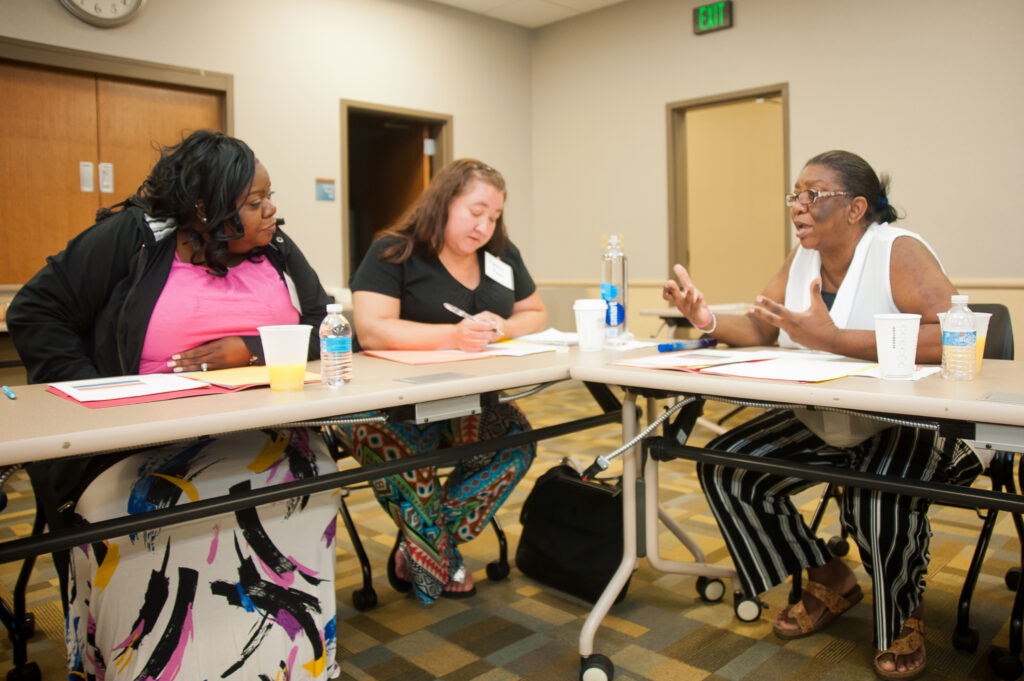At Provide, we think about our intervention, the Abortion Referrals Training, like a drop of water. Think about what a drop of water looks like–it has many ripples and can be many sizes. Culture change is what happens at the furthest ripples out from that initial drop.

We have evaluation tools that capture all those big, initial ripples and immediate changes, but we’ve been thinking and wondering more and more about the further ripples that represent culture change. How far does our work reach? And how do we capture and document the farthest ripples and larger impact of our work?
We know our work is creating culture change.
And we know this because, over the last couple of years as the Program Evaluation Manager, I’ve seen directly the impact of our trainings and conversations within health and social service systems. I’ve heard countless stories from training participants and leaders of the sites we train about how their workplace culture has changed since our training, they’ve used what they learned in a surprising instance outside of work, or they’ve shared what they learned from our Abortion Referrals Training outside of their workplace.
In our site follow-up interviews, when we ask, “What changes have happened at your workplace, or what do you do differently as a result of the training?” I’ve heard stories like this one from an Executive Director in Kentucky:
“There has really been a cultural change…now it’s okay to have that conversation, to ask for more information, when a client comes to you, you know we’re in the South, most people when they announce their pregnancy it’s been, ‘Oh my gosh, congratulations, I’m so happy for you.’ You don’t know if this is a good thing or not. It’s really re-framing the way we work with the client and find out if this is an intended pregnancy.”
We know this story is one of many.
We’ve been wondering, how do we learn from stories like this one? Or how do we capture all the stories and information that document the larger impact and culture change our work creates?
To answer questions like these, Provide is convening a learning community next year to explore evaluation methods around culture change.
We’re currently doing a literature review to see what work has been done already to document and evaluate culture change. And next year, we’ll bring together researchers from abortion, social science, and experts who have explored culture change around other topics like gay rights and tobacco cessation. Stories like the one above from Kentucky tell us that culture change is happening, and we want to create a framework and strengthen the methods we use to evaluate this culture change.
Evaluating culture change is essential to understanding if we are making the change we want to see in the world.
The framework we create will be our road map and the evaluation methods will help us create meaningful benchmarks. By using the framework as our guide and evaluation methods as our tools, we can document and measure each step to ensure we’re making meaningful strides toward creating lasting cultural change so that we’re able to continue to shift the experiences of those with unintended pregnancy in a positive and meaningful way.

